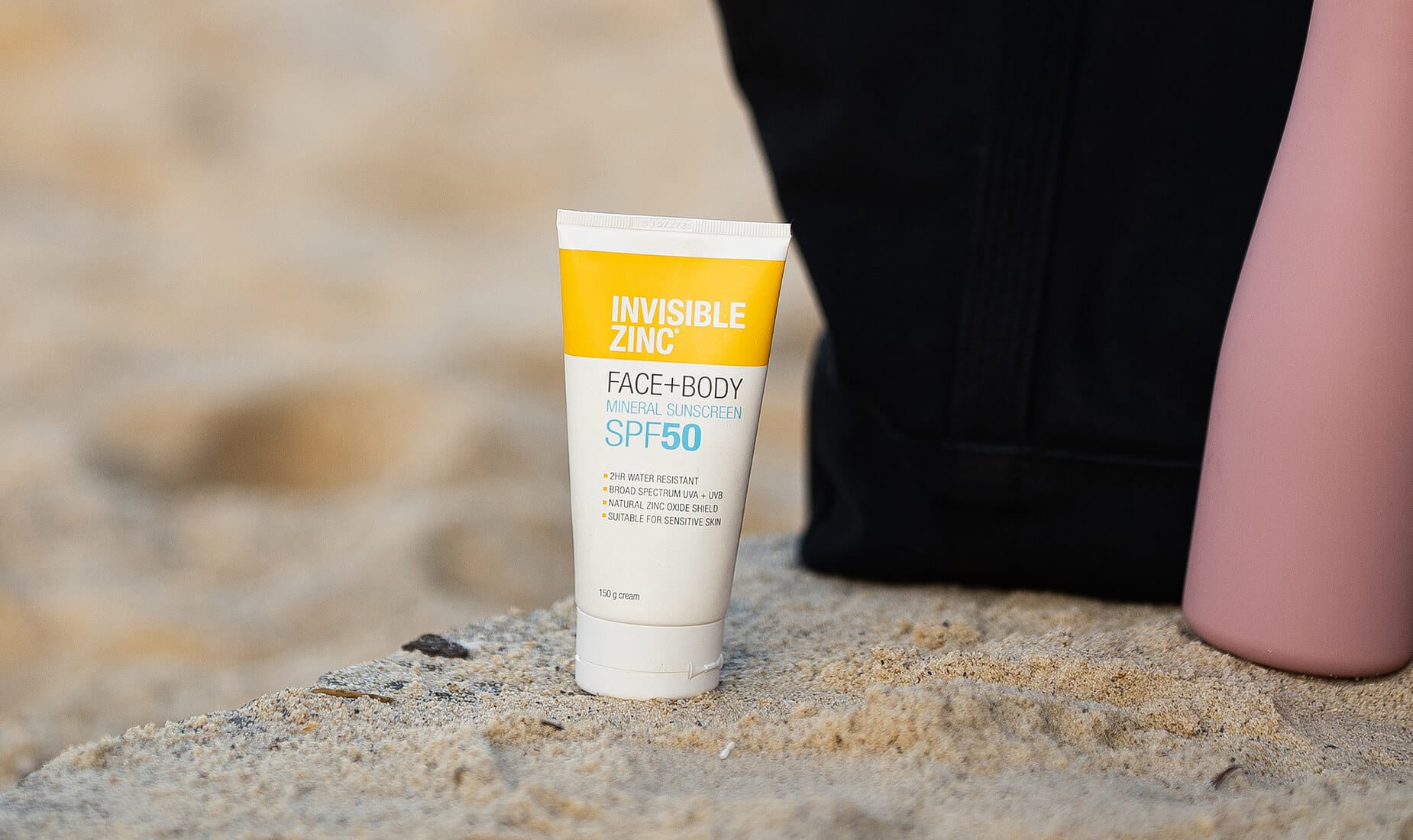
SUNSCREEN FOR YOUR BODY
For those long days at the beach or lazy afternoons by the pool, you know how important it is to be sun-safe. But did you know that your skin can be damaged with even small amounts of sun exposure as you go about your regular daily activities? Here, we review why wearing sunscreen every day can help protect your skin from harmful ultraviolet (UV) radiation and what you should consider when you are choosing a body sunscreen.
Why wearing sunscreen is important every day
We all know that sunburn is dangerous, increasing our risk for developing skin cancer, so wearing sunscreen on days when we know we’ll be out in the sun for a long time is almost second nature. But what about those everyday – often unplanned – moments where you end up in the sun? Those times when you take your morning coffee in the courtyard, walk to the post office at lunch time, or squeeze in that afternoon jog before the kids get home?
UV radiation can damage your skin – even before the visible warning sign of redness. Sun damage from even your limited exposure to UV radiation during your regular daily activities can add up over time. When UV radiation penetrates your skin, it causes both visible damage on the surface in the form of sunburn and cellular damage within the deeper layers of your skin that leads to wrinkling and other signs of aging.
The best way to limit the amount of UV radiation that reaches your skin is to wear sunscreen everyday, especially in warmer and sunnier weather when we tend to wear clothing that exposes more skin to the elements to help us stay cool. However, it’s important to remember that UV radiation can damage our skin even when it’s a bit cooler or overcast. The UV index is a helpful tool that measures the amount of UV radiation based on factors including time of day, location, weather, and season. Here in New Zealand, applying sunscreen to all areas of exposed skin is recommended every day that the UV index reaches 3 or higher.
What to look for when choosing sunscreens for your body
When it comes to choosing a body sunscreen, there are a few key considerations.
First and foremost, it needs to be effective. This means choosing a sunscreen with a high sun protection factor (SPF) and broad spectrum protection. SPF measures how well a sunscreen blocks the UVB radiation that causes your skin to get sunburned. Broad spectrum coverage means that a sunscreen contains one or more UV filters that protect against both UVB and UVA radiation, which differ in how they cause damage to your skin. Luckily, here in New Zealand, all sunscreens offer good levels of high SPF and broad spectrum protection when applied correctly. If your activities involve going swimming or getting sweaty, you should also choose a sunscreen that is water resistant.
The next factor you may want to consider is what goes into the sunscreen. The active ingredient in sunscreen that provides the UV protection is called a UV filter. These UV filters are categorised as chemical (organic) or mineral (physical or inorganic). Chemical UV filters work by absorbing UV radiation, while mineral UV filters work by absorbing as well as reflecting and scattering UV radiation. Both chemical and mineral UV filters can offer broad spectrum UV protection for your skin but if you have sensitive skin, you may want to consider choosing a mineral-based sunscreen. Because the mineral UV filters zinc oxide and titanium dioxide form a physical barrier on the surface of your skin, they are less likely to penetrate into the underlying skin cells – lowering the likelihood of your sunscreen causing skin sensitivity or irritation.
How to choose a sunscreen to suit your skin
Historically, mineral body sunscreen was often avoided because of concerns about visually unappealing white residue or film remaining on the skin or thick, difficult to spread formulations. Most modern mineral sunscreens use micronised zinc oxide or titanium dioxide, which results in smaller mineral particles that make the sunscreens easier to apply and rub in so they don’t leave a visible white residue – even if you have darker skin.
The best body sunscreen is the one that is easy and comfortable to wear every day. So it’s important to choose a sunscreen that suits your body’s skin type, whether that’s a creamy formulation to moisturise dry skin, a lightweight, nongreasy body sunscreen to help limit oily breakouts, or a low irritant product to minimise skin sensitivity.
When you’re looking for an effective all-over sunscreen for the whole family, try INVISIBLE ZINC Face + Body Mineral Sunscreen. It contains micronised zinc oxide to provide a high SPF 50 broad spectrum UVA plus UVB protection in 2-hour water resistant formulation that’s suitable for all skin types, including sensitive skin. Suitable for use on your face and body, it rubs in easily and dries clear.
Frequently asked questions about body sunscreen
All sunscreens in New Zealand offer good broad spectrum UV protection for your skin when applied correctly whether they are formulated specifically for the face or the body. While body sunscreens tend to be formulations that can be applied all over the body, some face sunscreens may be formulated for different skin types.
To achieve adequate sun protection, you should apply 30 mL to 40 mL of sunscreen – that’s about one full cupped adult hand – to cover an entire adult body. That works out to about 1 teaspoon of sunscreen per arm, leg, front and back of body, and the face and neck.
Body sunscreens that contain the UV filter zinc oxide are called mineral sunscreens and protect you from UV exposure by forming a protective barrier on the surface of your skin. For a high SPF 50, broad spectrum, water resistant zinc sunscreen suitable for all skin types, try INVISIBLE ZINC Face + Body Mineral Sunscreen.
NZ-2024-07-0039
